Colleague Lisa participated in Regenerative Agriculture training in Kenya
What if we could practice agriculture to restore ecosystems? What if growing crops would be beneficial for the soil quality, rather than destructive? If we could work with nature rather than against it?
In an ideal scenario, food production does not have to compromise the condition of the world we live in. Food would grow in lush forests, where fruits, vegetables, livestock and trees coexist in harmony with each other, while providing nutritious and affordable food for everyone.
Regenerative Agriculture on Tamalu Farm
This is not just a dream. This is called Regenerative Farming (R.A.): a holistic way of farming in harmony with nature.
Our colleague Lisa participated in a training on R.A. last week at Tamalu Farm in Timau, at the slopes of Mount Kenya, and shares her experiences.
Regenerative farming is the philosophy of Tamalu Farm. On this 10-acre farm, regenerative agriculture is practiced in forms of a syntrophic agroforestry. Since its establishment in 2019, Tamalu farm produces a profitable yield of fresh produce year-round. The staff of Tamalu believes strongly in regenerative agricultural practices to shift the narrative in agriculture. Their motto: Feed the soils and the soil will feed us back in abundance.
The result of this philosophy shows on the farm: Tamalu’s syntrophic agroforestry represents the diversity mother nature has to offer. The carefully built forest consists of rows with indigenous trees, vegetable crops, shrubs, fruit trees, bushes and berries, all serving a different purpose both above-ground as well as under the soil. In a nutshell, the principles of regenerative agriculture focus on improvement of soil health and soil building. Its aim is to build as much biomass as possible by means of mulching, pruning and zero soil disturbance. The soil has to be covered at all times to stimulate micro-organism growth to nourish the soil and therefore stimulate plant health and growth. When set-up well, a syntropic agroforest will consist of multiple ‘layers’, starting on the forest floor (strawberries, butternuts, herbs etc) all the way up to the canopy (fruit, nut, indigenous and timber trees). After a couple of years, the forest will sustain itself and will serve as its own little ecosystem including abundant soil life and flora and fauna alongside the production of a diversity of crops and therefore revenue streams.
Regenerative Farming Apprenticeship
The Tamalu Farm Apprenticeship program focuses on gaining practical experience in regenerative agricultural practices. The training was given on the farm by Frederick Kipchumba, expert in R.A. in Kenya. The program offered both theory classes and field work, to put the learnings immediately into practice. The week started with the basics of regenerative agriculture, including the differences between conventional agriculture and organic. R.A. is so-called: ‘beyond organic’ due to the complete ban on external inputs, of which none are approved on the farm.
Thereafter, the training focused on soil building. The practicals were pruning of trees in different ways for fungi-rich soil purposes for tree growth and mulching for bacteria-rich soils, suitable for vegetable crop production.
The apprenticeship touched upon all the different steps of running a regenerative farm, from nursing and propagation to integrated pest management using botanical solutions, repelling plant properties and liquid smoke. Harvest and post-harvest management were also covered in the training, including cleaning and packaging of fresh produce for customer delivery vegetable boxes. The latter subject related directly to the importance of enterprise development in regenerative agriculture: the entrepreneurial side. The general public belief (especially in communities) of R.A. not being profitable is proven to be untrue. The apprenticeship emphasized on the business opportunities of having such a diversity of produce available on the farm. From diverse and scarce (and therefore high-value) crop cultivation thanks to the rich and resilient soils to beekeeping, livestock and seedling production, business opportunities in R.A. are everywhere and the training inspired us all to be creative in spotting them!
Last but not least, the practical side of farm management was discussed in terms of how to create a planting schedule to timely produce specifically based on customer demand, seasons or other variables a farm has to deal with.
Personal note
“Being trained on this topic was absolutely eye-opening and changed my perspective on farming entirely. I can’t wait to put my learnings into practice and develop Q-Point trainings to inspire and inform others about the importance and beauty of regenerative farming! I’ve seen and experienced it myself: feed the soils and the soils feed us back. It is time to work with nature and collaborate with it as it is our biggest ally towards a fair and healthy ecosystem for us and all the future generations to come!”
Want to know more? Check out Tamalu Farm here: Tamalu Farm | Revival Story | Kenya
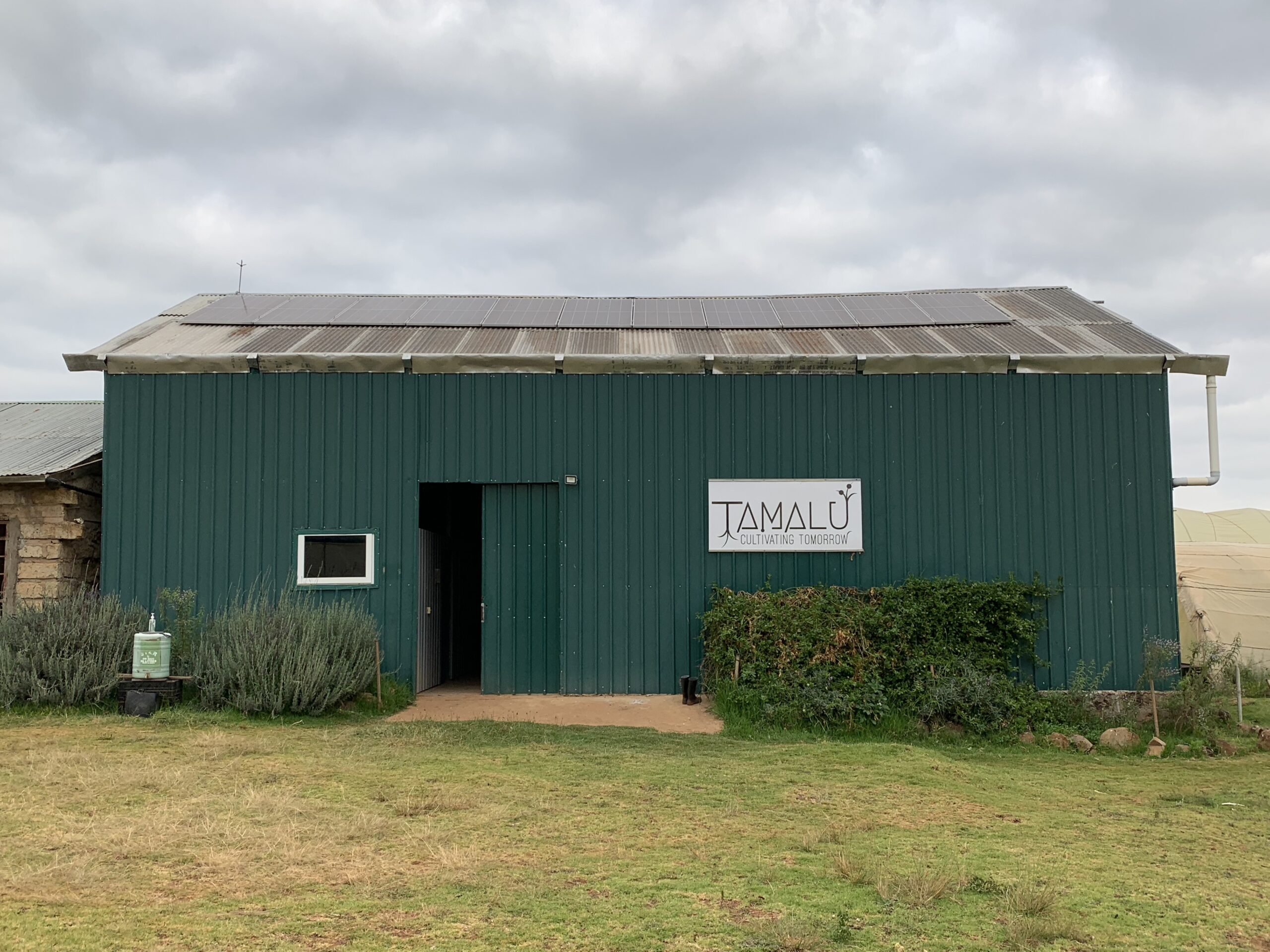
Tamalu Farm
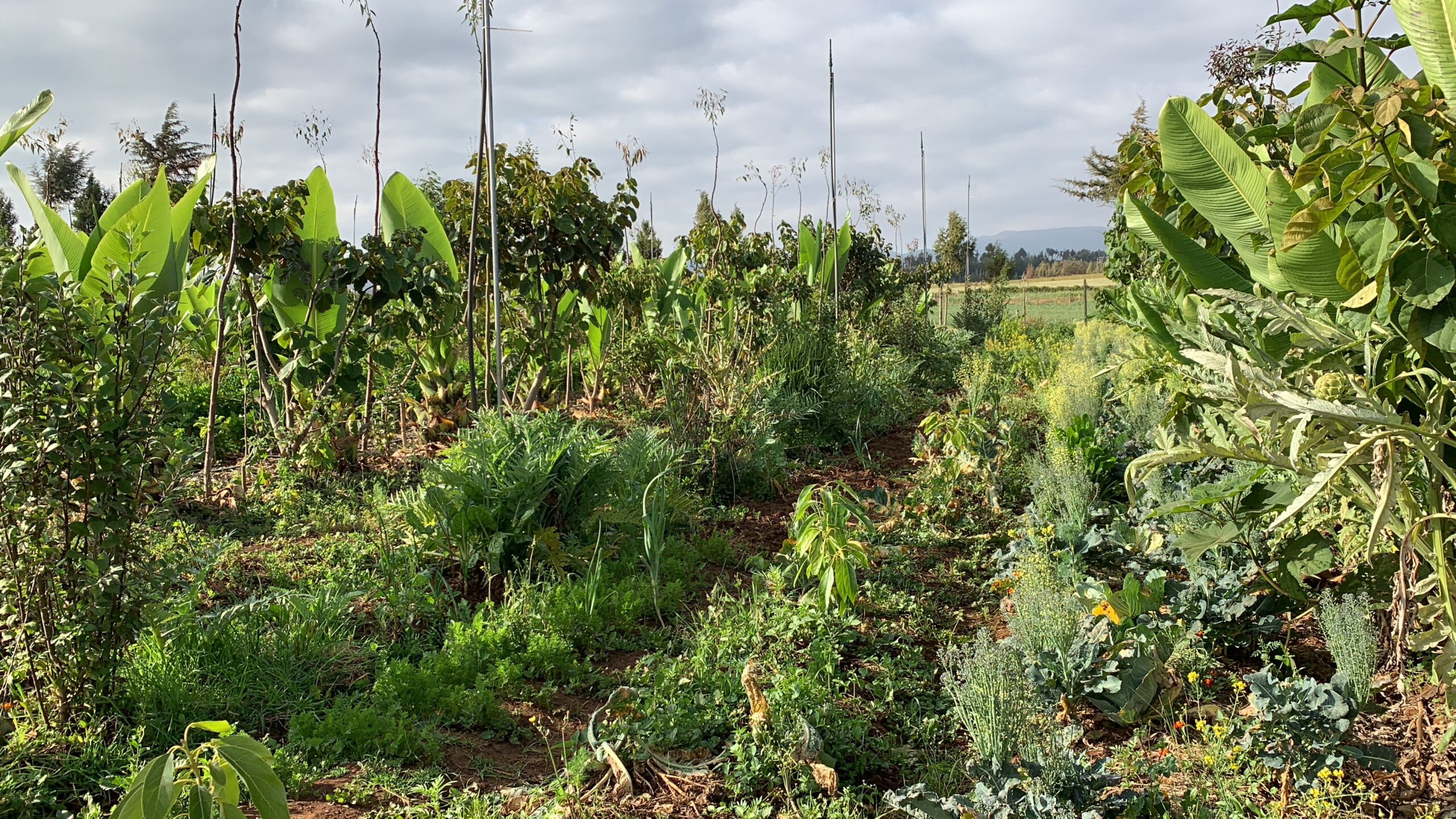
The Syntropic Agroforestry – Crops and Tree lines
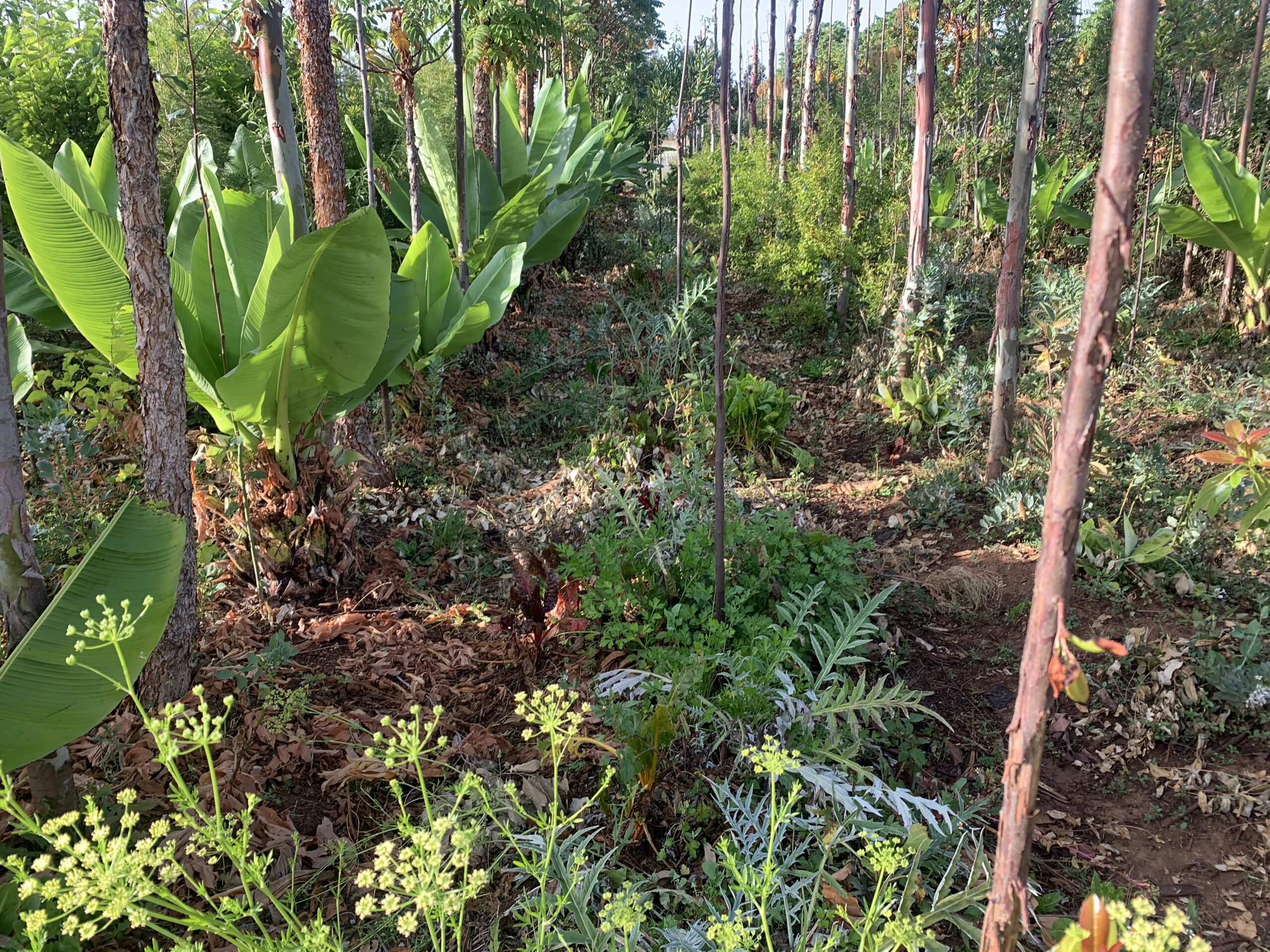
The Syntropic Agroforestry – Mulching
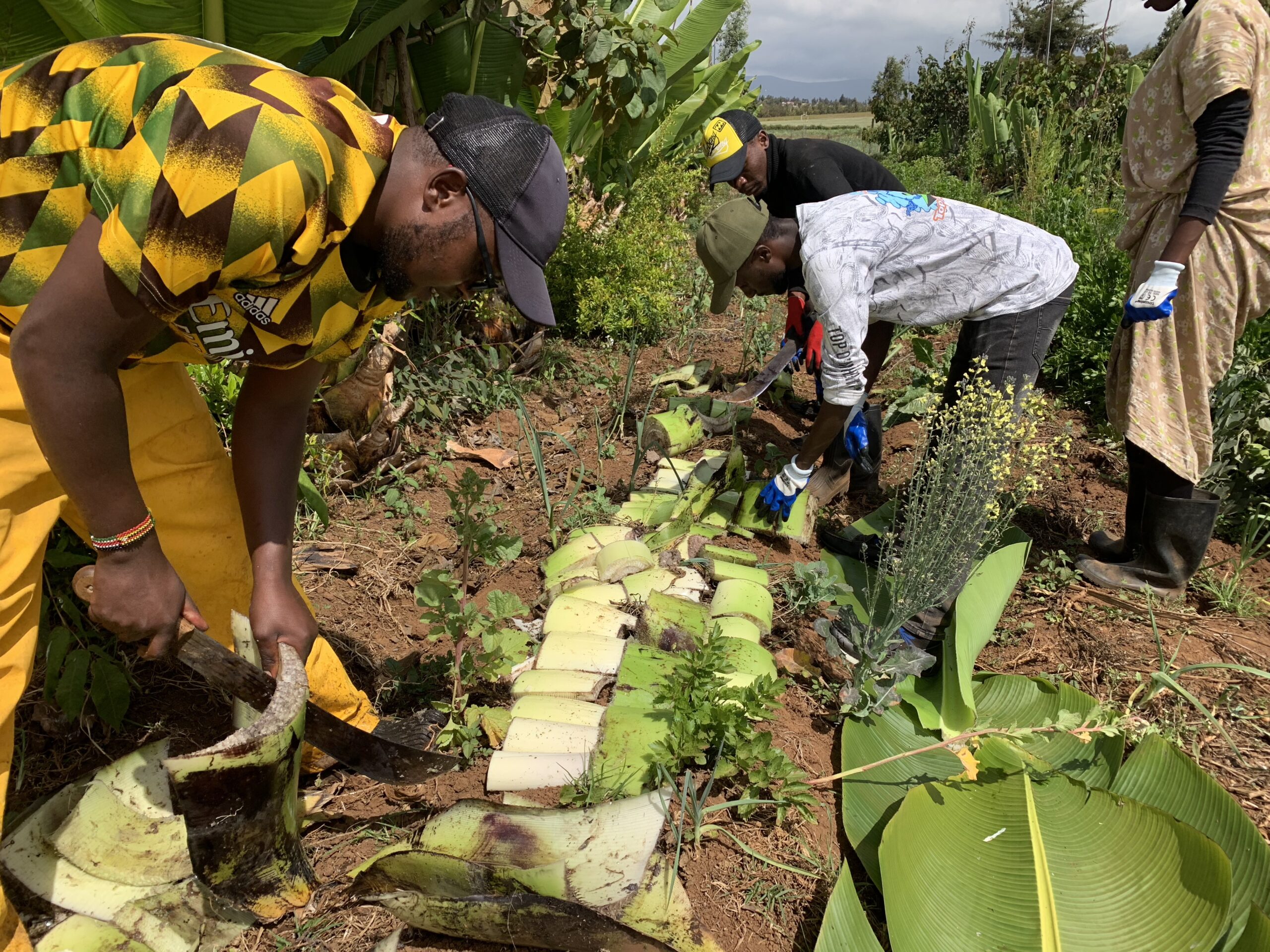
The Syntropic Agroforestry – Banana leaves for as soil cover
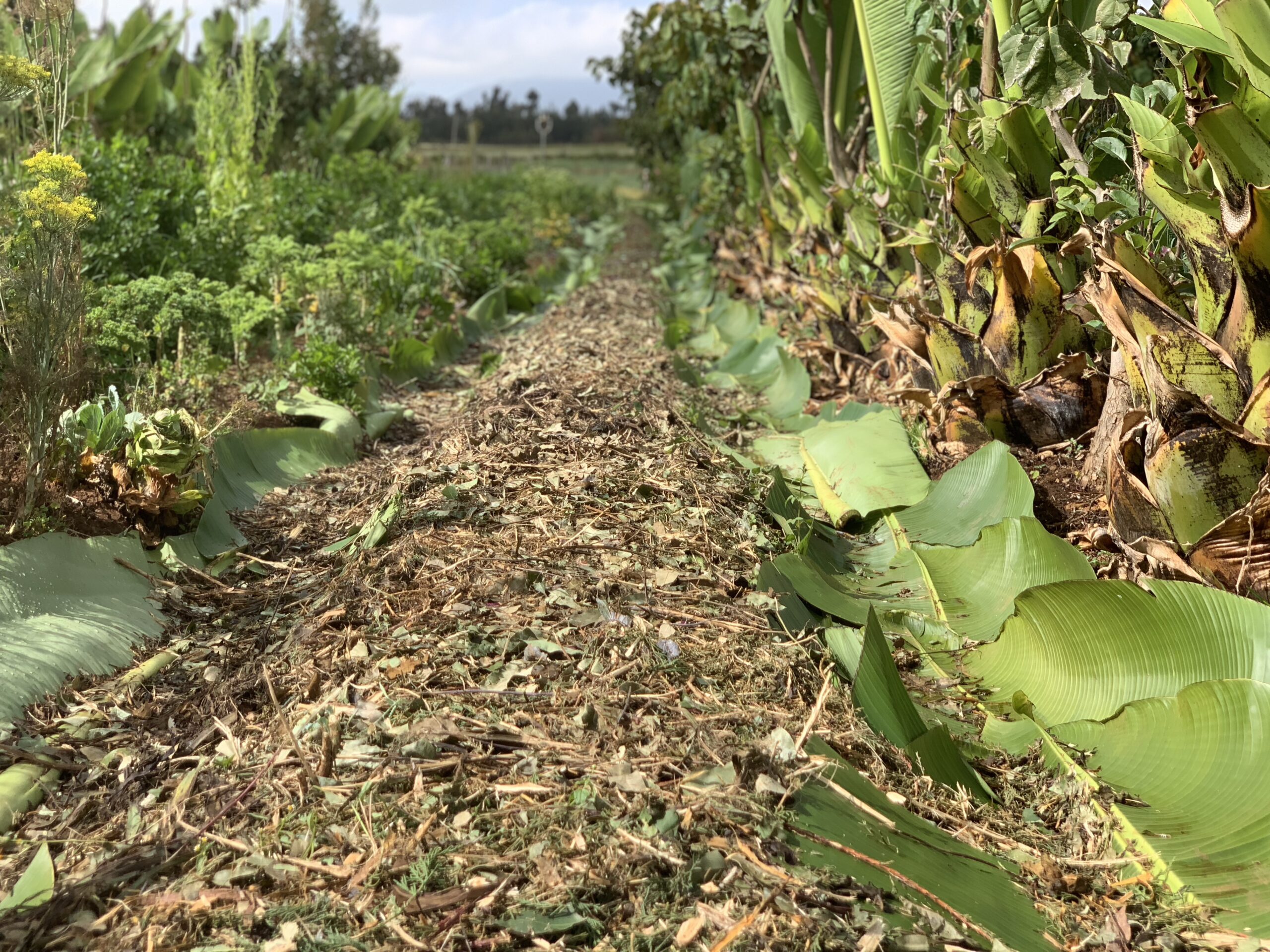
Mulch as soil cover
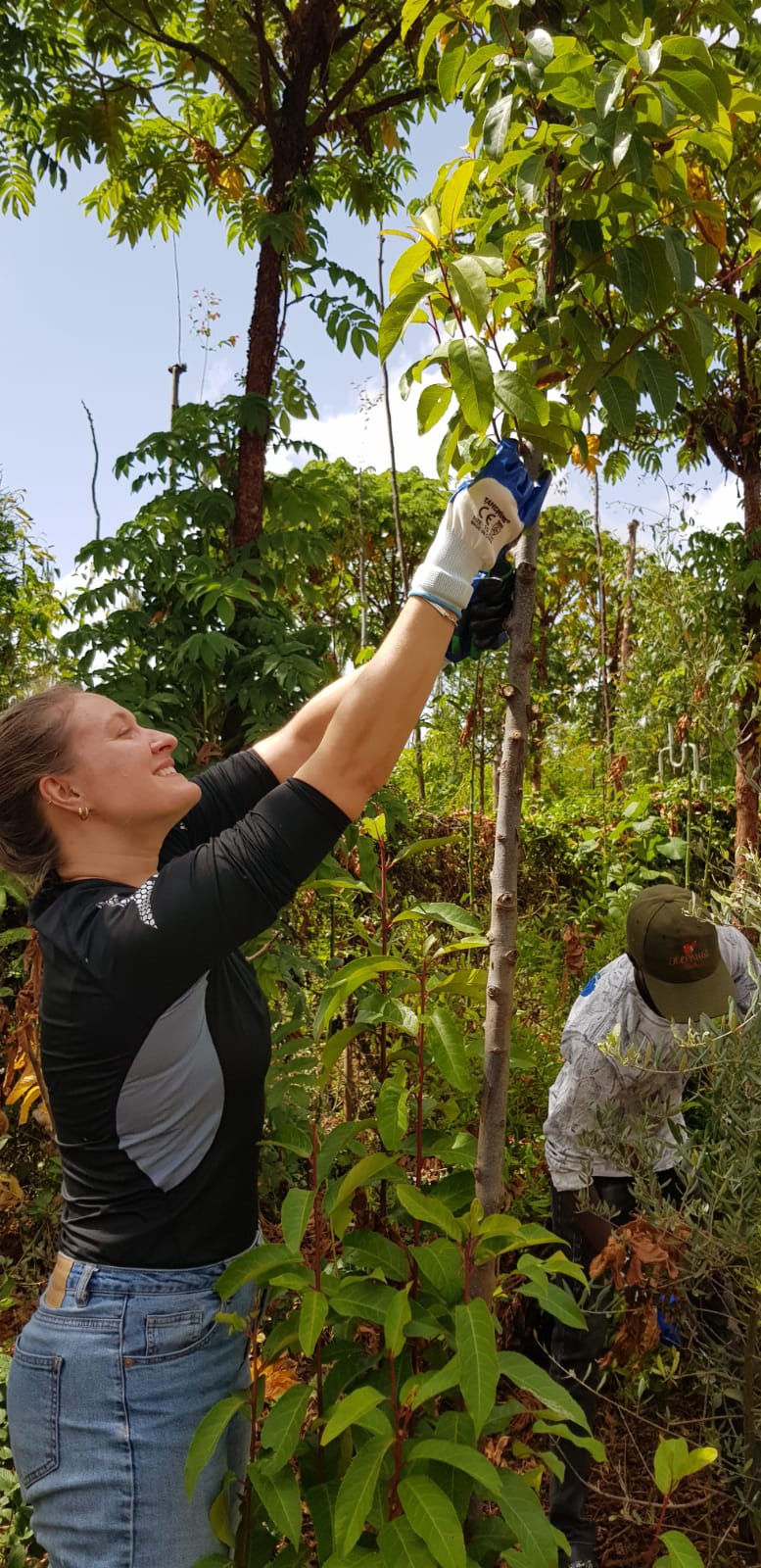
Pruning of indigenous trees
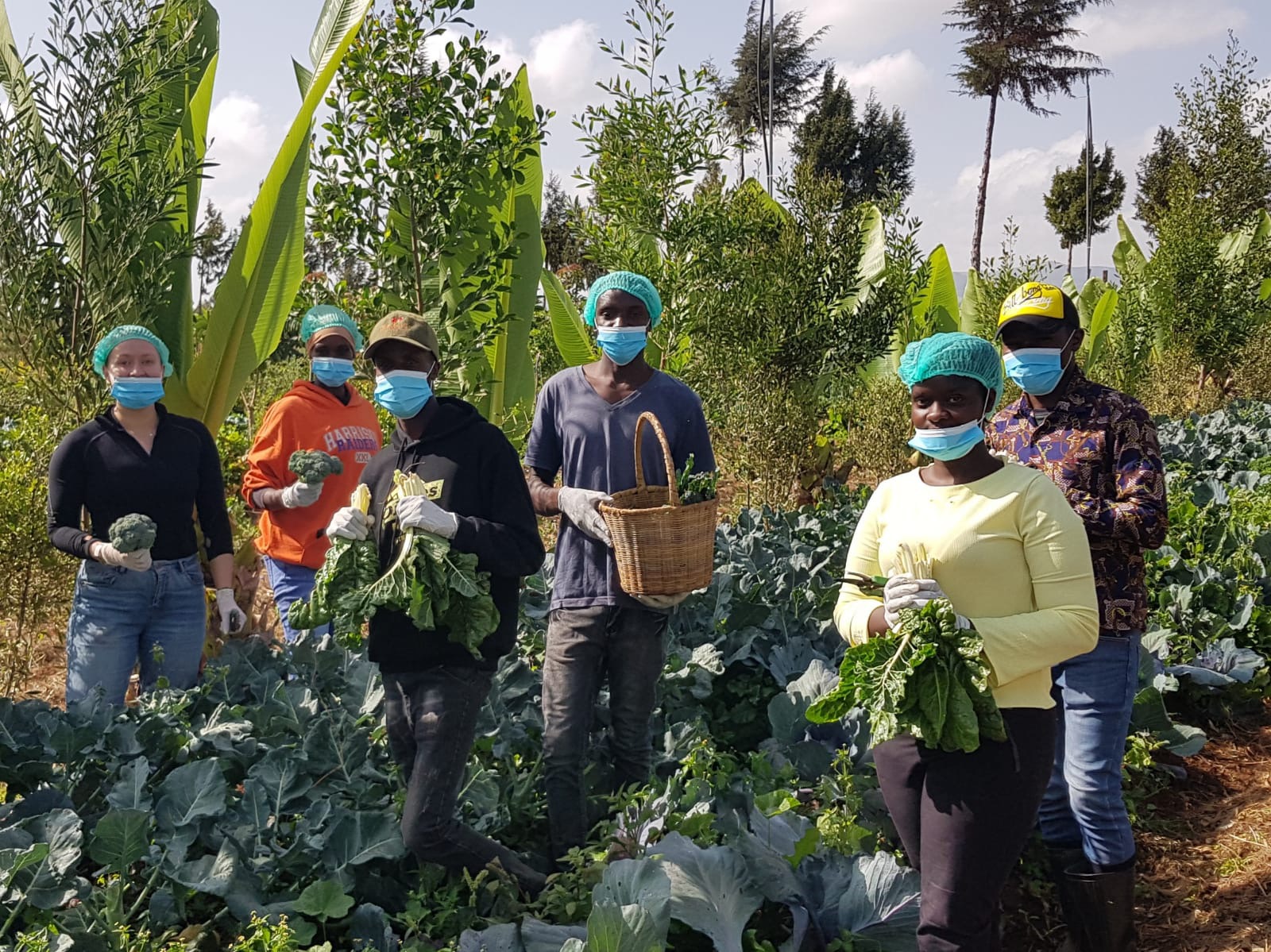
Harvesting crops of the plant consortium
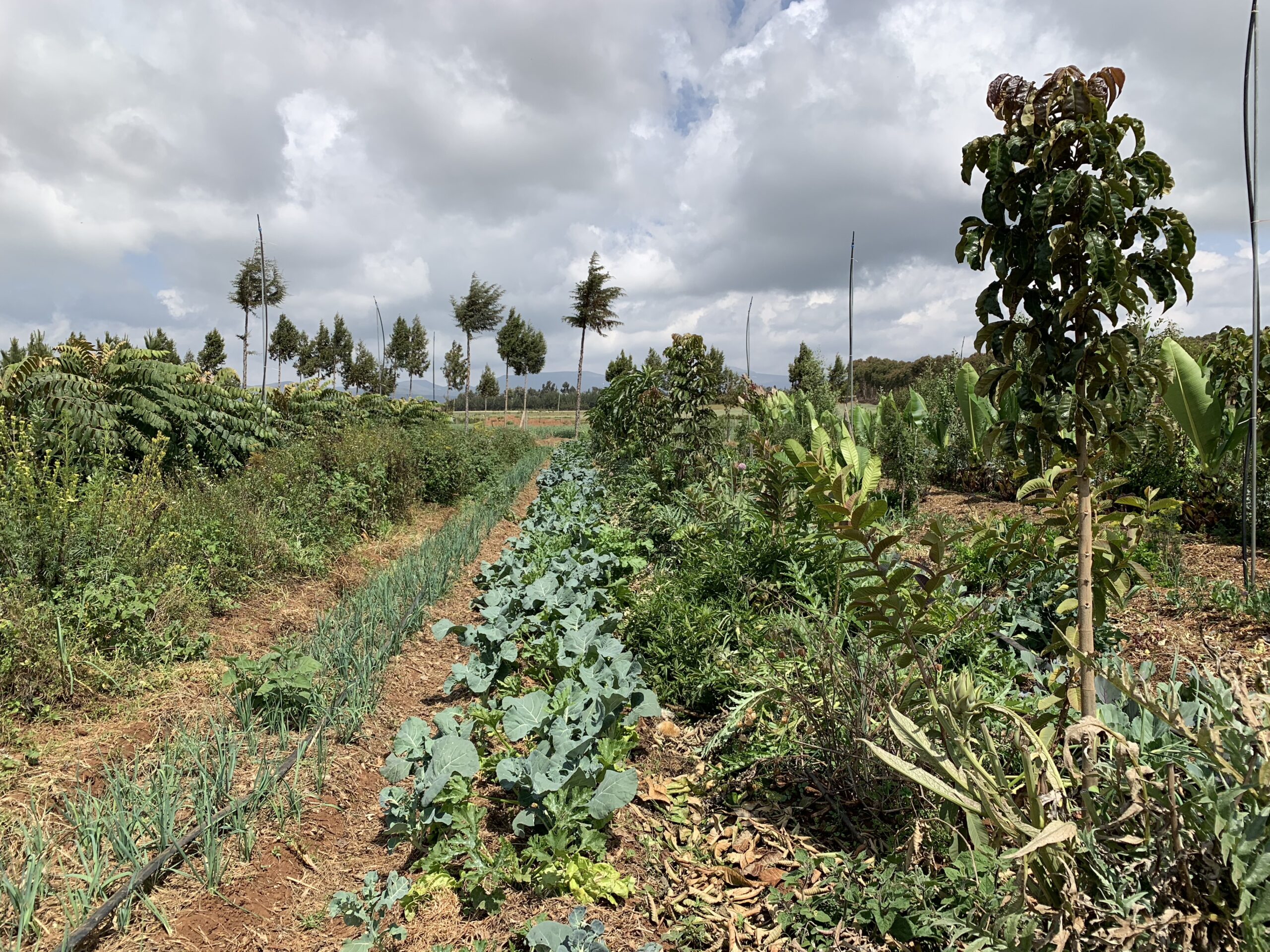
The row-structure of the syntropic agroforestry

Crop nursery
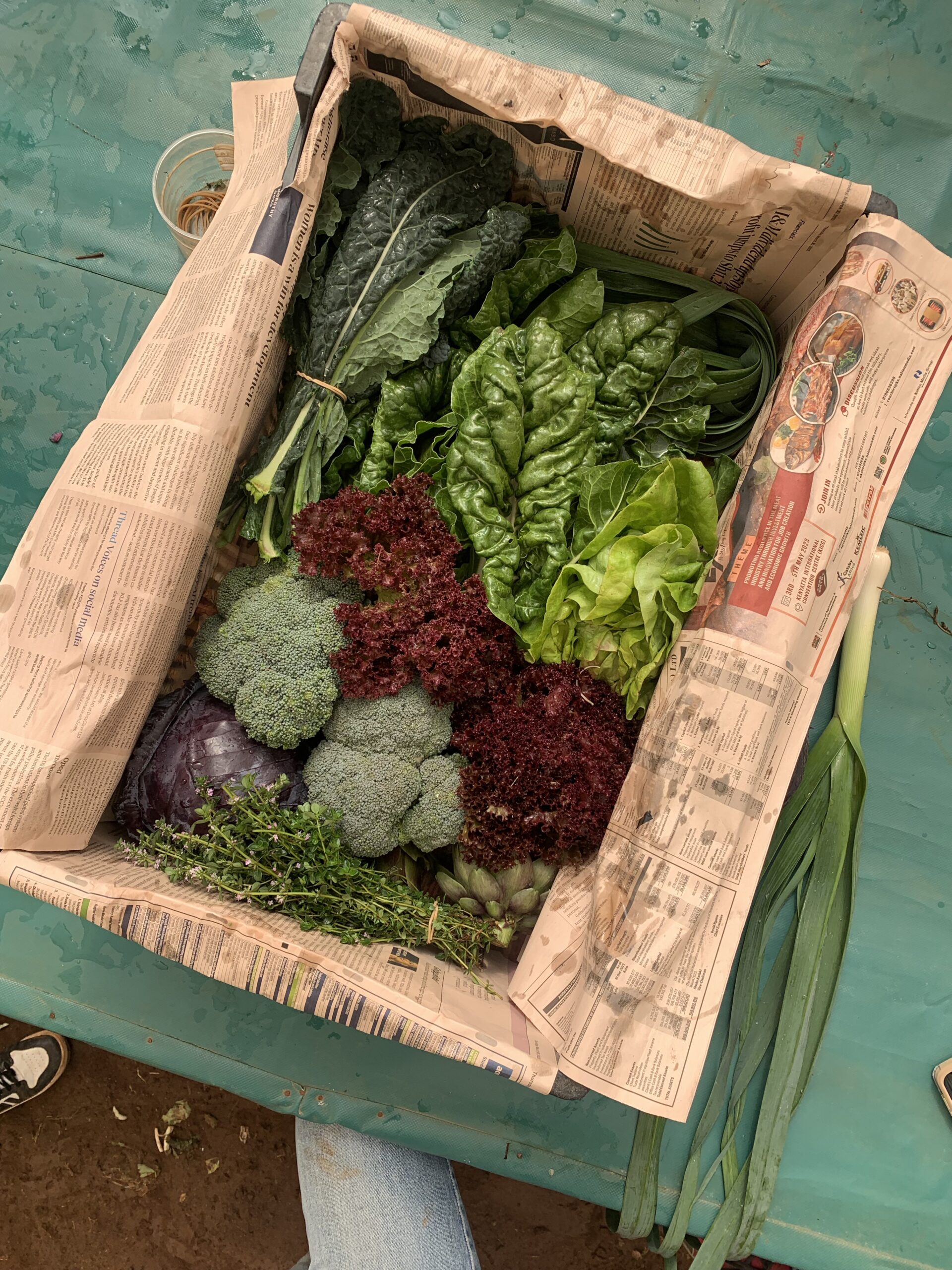
Harvested vegetables
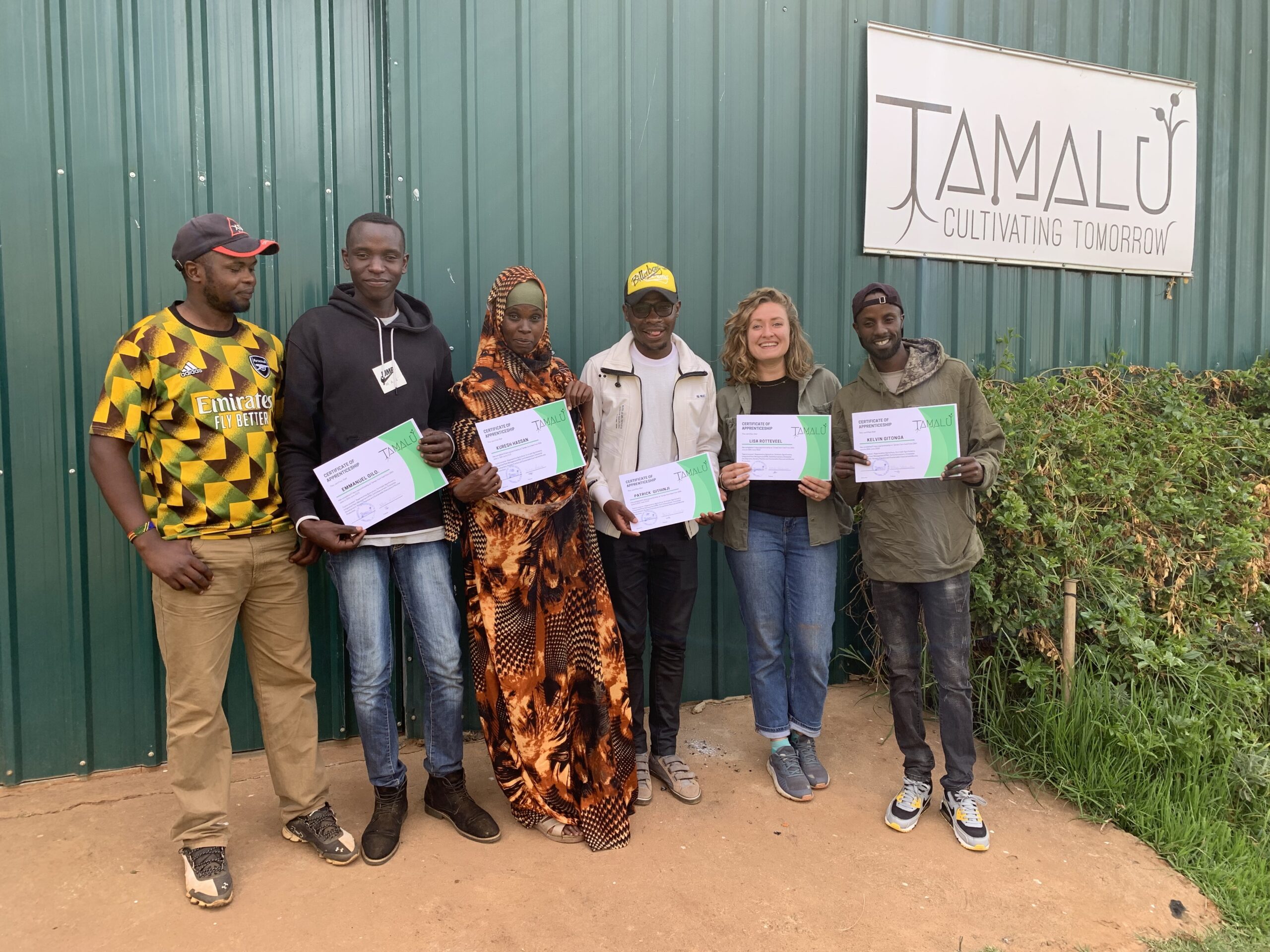
Graduation of the apprenticeship



